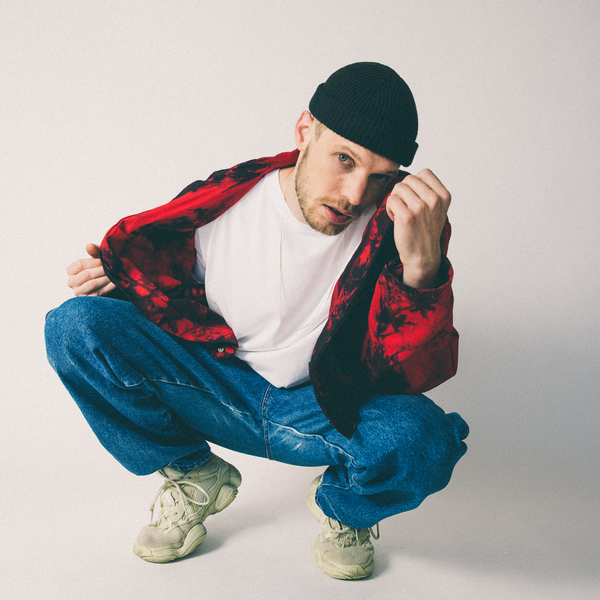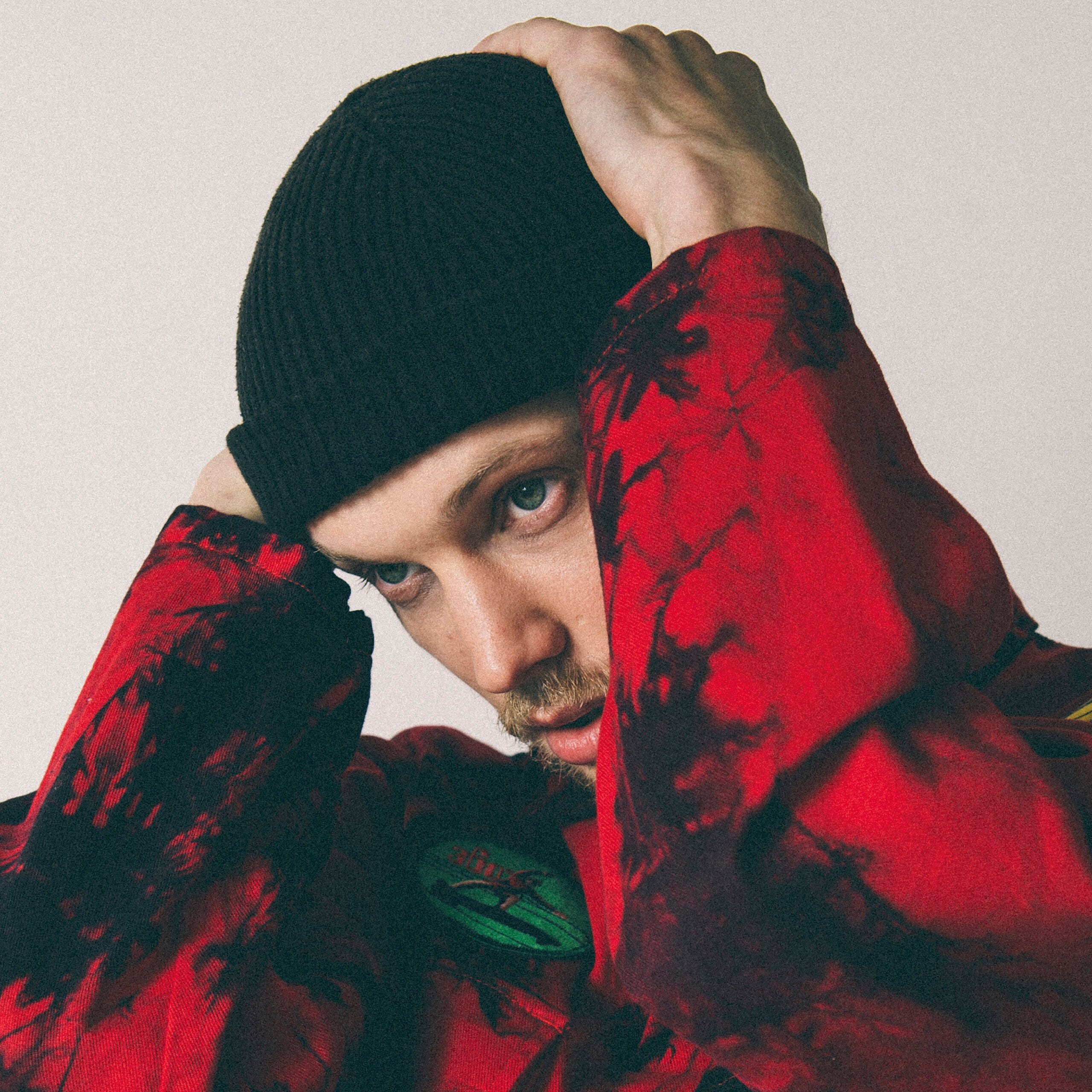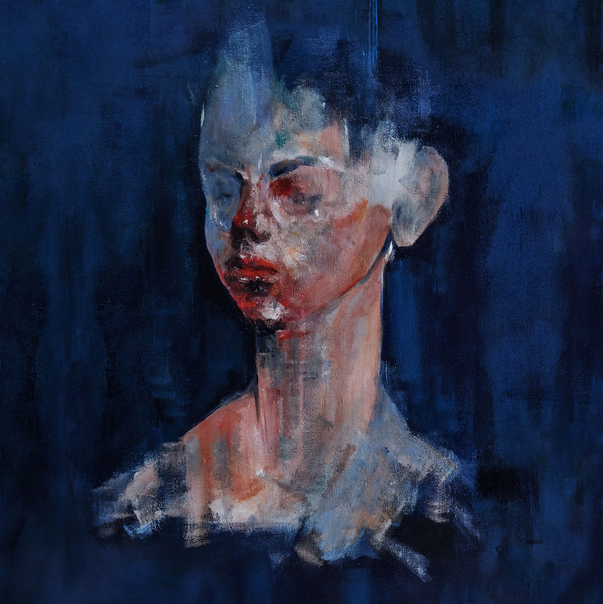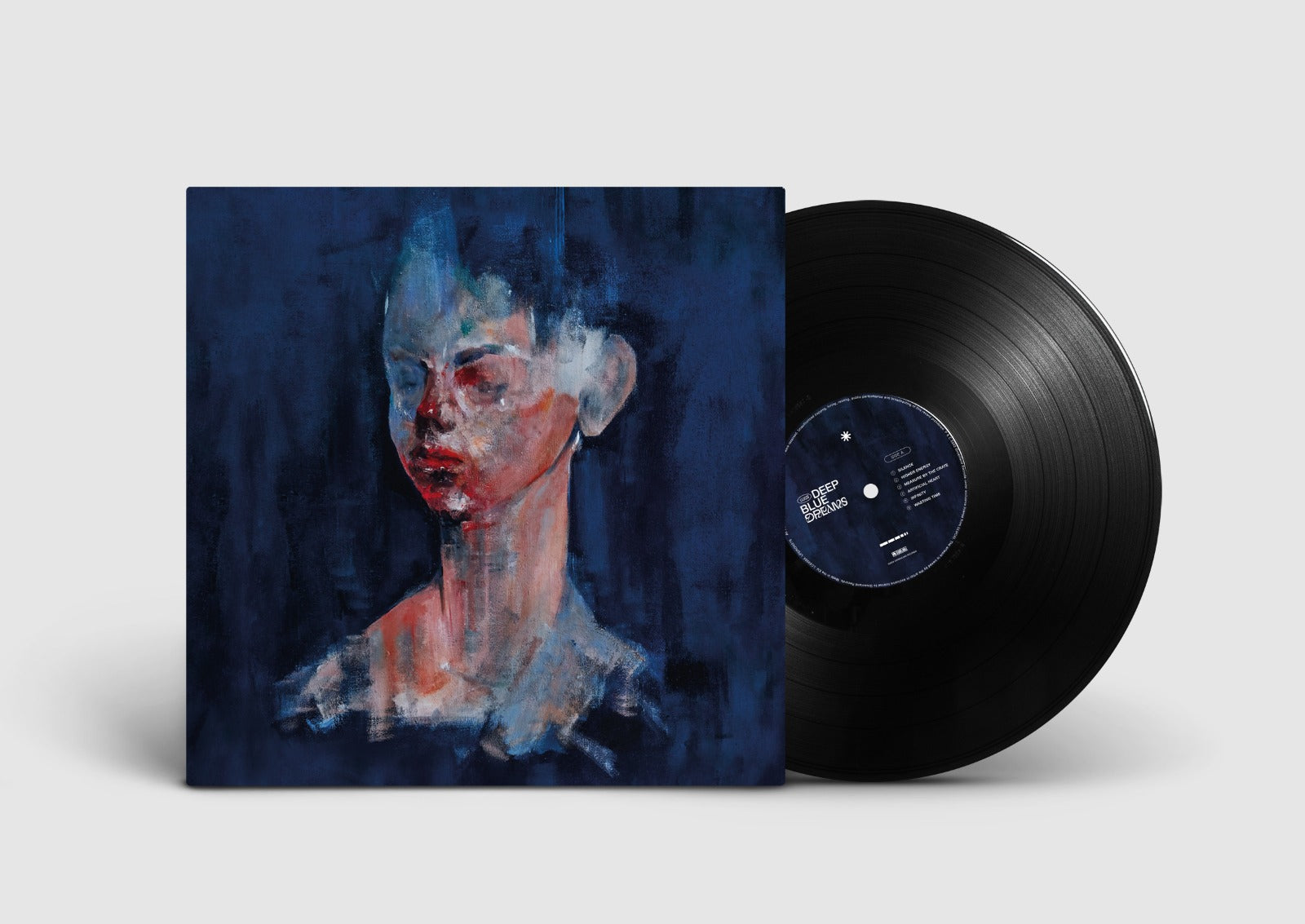LLUCID
LLUCID, the creative crossover artist in music, takes you into a fascinating soundscape. His multifaceted debut album combines rap, trap, melancholic vocals and innovative production into a cross-genre masterpiece that celebrates the diversity and passion of his work.
The deep, blue dreams begin with a wistful piano and a voice from the future. It sounds spacey, cool, alienated, like pop music from the year 2047. And yet there is a certain warmth. Perhaps in the words. "So happy I could cry," she sings at the beginning. And just when you're wondering whether you should reach for the tissue, the bass comes in at second 40. "I can't stand the silence," the voice now sings - and ends this silence in a total of twelve songs in a way that is as rousing as it is stylish. "Silence" is the opening track of the album "Deep Blue Dreams" by the just 26-year-old musician, singer and producer Lucas Herweg alias LLUCID. Some people who are interested in international-sounding music from Germany will have known him for a long time - but more on that later. First of all, you should immerse yourself in these twelve deep, blue dreams, which by no means all begin as trance-like as the album opener. Just listen to “Manifest”: a banger between rap and trap. Casual, snotty, self-assured, produced with incredible force – with choirs that would make you want to draw a comparison to Ye, if he hadn’t turned into such a moron in recent years. Then there’s “Cast Away”: gentle sound waves, exquisite beats and again the sad, searching LLUCID. Autotune but make it melancholic. Lines that revolve around departure and memories, “moving out to new shores” is what it says at one point – and that pretty much sums up LLLUCID’s urge to explore. The great role models of “Cast Away” can be heard more or less clearly: Kendrick Lamar’s calm, flowing pieces, the productions of J. Cole, the often light-sounding melancholy of Frank Ocean, artists like Ty Dolla $ign, who consistently blur all boundaries between rap and R&B. But also: Indie crossover artists like Bon Iver, who spectacularly married his later, artificial sound and singing in 2010 on "Lost In The World" with this once great artist, who has unfortunately become unbearable today and whom we dropped earlier. "Wasting Time" on the other hand brings a young, great British artist on board, who released one of the albums of 2023 with "A Reckoning" in January: Kimbra sings in "Wasting Time". She floats casually into the second half of this unusual duet, which sounds spacey and heartbreaking at the same time. Which of course has a lot to do with LLUCID's handling of his own voice, which sometimes becomes much more of an instrument thanks to technical aids than it could have been with analogue means. LLUCID also has the right answer for the Auto-Tune haters. "How long has this discussion been going on? Since Cher? Although I have to say in defense of the haters: If you listen to the charts, then I sometimes understand their point. But otherwise I always tell them: You don't know the good shit! If you listen to Frank Ocean, or Bon Iver, or '808s & Heartbreak', then no one can tell me that it doesn't have artistic value."
If you occasionally wonder whether this is really the tracklist of a debut album: Yes, that's true. However, LLUCID is one of those newcomers who are no longer newcomers in the strict sense. LLUCID studied in Mannheim for a while, but halfway through his studies he preferred practical music making to studying at the Pop Academy and dropped out. There, however, he met the singer Dena Zarrin aka Madanii and recorded his first pieces with her. The best way to hear how well that worked is on "Sober". LLUCID, who now lives and works in Berlin, slowly but surely pushed his own solo work in the years that followed and released the six-track EP "Getting In Touch" on Grönland in spring 2022. There are sometimes fantastic music videos for the single "Habits" and other tracks that would have a few million more clicks in a just world. But LLUCID has also expanded his production portfolio and made music with exciting people who can be found in rap as well as elsewhere. "I worked with Hundreds for a week and also lived with Philipp Milner's family during that time. It was great to work together in the studio every day." He learned a lot there, as well as from his work on the last album by Irish songwriter Wallis Bird. In rap, he is particularly valued by the scene authority Samy Deluxe. This has now developed into a real friendship, "which of course has a bit of a mentoring touch." LLUCID was once invited to a session in Samy's studio with friends. "But I thought it was just a cozy hang out in the studio and didn't know it was Samy's studio." They got talking, and over the course of the evening Samy showed him a few song sketches and asked him if he could think of anything." LLUCID thought of something - and Samy was hooked.
This fulfilling creative life is probably also where the joy of teamwork that characterizes “Higher Energy,” for example, comes from. A hymnic, powerfully reverberating piece in which LLUCID simply ignores the genre pigeonholes of hip hop, sometimes raps in a venomous, nasal way, then brings in choirs and official yearning, or throws a chorus into the song that comes across as almost sacred. “Higher Energy” was created in an intuitive process that is probably only possible because he has been living the music thing for years - which means: spending a lot of time in the studio. “'Higher Energy' is one of the songs that was written there more or less in one night. I organized a kind of songwriting camp that evening and we were creatively intoxicated. When that happens, I sometimes have a complete basic structure for a song in the morning. Another advantage is that I am multidisciplinary. I play instruments, sing, rap, produce – I can act very freely.” And that’s exactly what he has been doing for years.
LLUCID doesn't care about national borders or style categories. In fact, his songs could easily be included on a show like, say, "Rap Life Radio" with Ebro Darden on Apple Music Radio. "Made in Germany" doesn't really come through here - unless you look at the pioneering phase of electronic music from Kraftwerk to NEU!, which probably influenced every producer in some way. In terms of production and taste, LLUCID has always looked across the pond. "I'm actually only influenced by American music. The Cole stuff or early Kendrick in particular opened up completely new spheres for me." You can also tell from his singing and/or rap style. "For me it's always this mixed form. Sometimes sung, sometimes rap, sometimes something in between. That's certainly what triggered my genre-free music listening to a certain extent. There are simply many different vocal signatures - sometimes one fits better than the other. When I discovered hip hop, I liked the crazy rhythm of the spoken word, but I also loved the melodic vocal parts. I always asked myself: why don't we mix them all anymore?" His way of working was always characterized by a certain curiosity, which not only opened up his listening to music but also his making of music. "I actually originally came from drums and rock. As I got older, I became interested in all kinds of genres. I work like this: I hear something new, find it exciting because I don't get it - and then I want to get it."
The album title "Deep Blue Dreams" in connection with the artist name LLUCID naturally leads to the more deep psychological question of whether we are dealing with a lucid dreamer here - someone who is consciously able to act in their own dreams. "Unfortunately not," he says. But: "My own name would be ultra-boring and I found this word to reflect the way I experience music very well. I can lose myself in it and in this working process the boundaries between fantasy and reality sometimes blur, as happens in lucid dreams." The album title is therefore a perfect addition, metaphor - or even an appropriate timbre. "Last summer I retreated into nature for two weeks and just made music. I was completely immersed in this film and thought intensively for the first time about what this album could be called. How do all these songs, which stylistically are all over the place, connect? I just love the colour blue, this dreamy sound aesthetic was obvious - and that's how it came together." The cover image also confirmed his choice of title. "The image is by Edgar Koop, an artist from Mannheim. I knew him because he made a video for me and Madanii when he was still studying there. Since then I've followed him on Instagram. I saw this image two years ago and was instantly in love. I thought to myself: At some point I have to buy this image or do something with it. When I came up with the title in the summer, I went back to Insta to gather inspiration that would fit with 'Deep Blue Dreams' - and when I saw the image I immediately thought: This is a match." Koop was on board immediately and you somehow can't help but get the impression that this image was once made for exactly that purpose.





